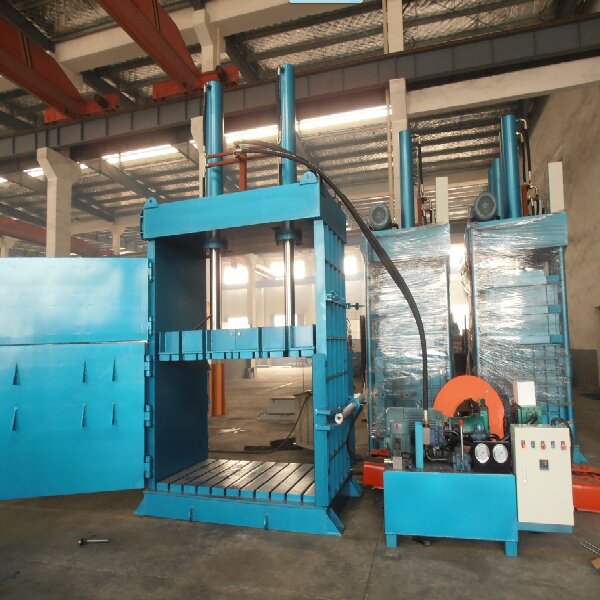Faced with a dazzling array of Scrap Tire Bale Press brands and models on the market, how do you make the wisest choice and avoid investment mistakes? Selecting a suitable Scrap Tire Bale Press is a technical task that requires comprehensive consideration of many factors. This guide will outline the key decision points to help you find the perfect machine to meet your business needs.
The first task is to clarify your processing requirements. You need to clearly answer the following questions: What types of tires do you primarily process (passenger car tires, truck tires, or radial giant tires)? What is your approximate daily or monthly processing volume? This determines the size and processing capacity of the equipment you need. If the machine is underpowered, it will be overloaded and prone to breakdowns; if it's overpowered, it will result in a waste of money and energy. What are your site conditions? Is there enough space to install the equipment, and can the power configuration (three-phase electricity) meet the requirements? These are the foundation for equipment selection.
Next, you need to compare the core parameters and configurations of the equipment in detail. Pay attention to the baler's maximum compression force, hopper size, and the size and density of the final bale. These parameters directly affect the baling effect. At the same time, carefully examine the brands of key components, such as hydraulic systems, electrical control components, and motors. High-quality core components are the cornerstone of long-term stable operation of the equipment. The level of automation is also an important consideration: will you choose a semi-automatic model that requires manual assistance for loading, unloading, and strapping, or a fully automated production line integrating conveying and automatic strapping? The latter requires a higher investment but can significantly save labor costs and improve efficiency.
Finally, but equally important, evaluate the supplier's overall capabilities. Responsible supplier not only provides qualified equipment but also comprehensive support. This includes: Do they provide detailed technical solutions and site planning advice? Is their after-sales service system comprehensive and responsive? What is their warranty policy? Is their spare parts supply sufficient? Furthermore, request the supplier to provide existing customer case studies and conduct on-site inspections to see the actual operation of the equipment firsthand and listen to feedback from existing users. This is more convincing than any fancy brochure. Remember, purchasing a tire baler is a long-term investment; cost-effectiveness is far more important than the lowest price.

Nick Baler's tire and rubber balers are designed to handle scrap tires, rubber sheets, conveyor belts, and industrial rubber waste, ensuring efficient compression for transportation, recycling, and disposal. Whether you're in the tire recycling industry, landfill operations, or rubber processing sector, our high-performance balers help reduce storage space, minimize handling costs, and optimize logistics.
With the increasing demand for eco-friendly waste management, our tire balers play a crucial role in sustainable recycling processes, making tire-derived fuel (TDF) production, retreading, and crumb rubber processing more efficient.
Why Choose Nick Baler's Tire & Rubber Balers?
Compress bulky rubber materials into dense, transport-ready bales.
Hydraulic-powered balers ensure maximum pressure and efficiency.
Optimized for used tire recycling, rubber waste processing, and landfill operations.
Available in vertical and horizontal models for different facility layouts.
Durable construction with heavy-duty wear-resistant components.
https://www.nkbaler.com
Email:Sales@nkbaler.com
WhatsApp:+86 15021631102


